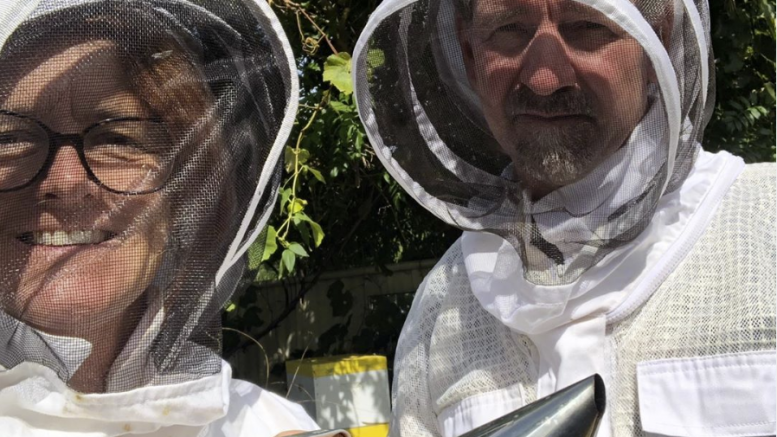Member for Gosford Ms Liesl Tesch used World Bee Day on May 20 to call for a recovery plan for the beekeeping industry to maintain the state’s production of honey.
“Apiarists across the state have been severely impacted by the devastating summer bushfires that destroyed thousands of hives housing many millions of bees,” Ms Tesch said.
“Many were already reeling from three years of ongoing drought.
“The trees bees need simply won’t recover in time.
“It could take between five and 20 years for some flowering gums to recover enough to produce enough nectar and pollen to feed the bees,” she said.
“The industry has been crying out for assistance, and it is past time that the Government listened to them.”
Ms Tesch, who keeps a hive in her own backyard, said that beekeepers have called for more research directed at helping the sustainability of Australia’s bee population.
“Apiarists are looking for alternative sites and have approached the State and Federal Governments to seek access to unburnt national parks and state conservation areas to feed and strengthen bees for the task of pollination.
“NSW apiarists were given short-term food source of sugar supplements for the bees in the fire-affected areas earlier this year.
“They need ongoing support from the Government to ensure not only the bees’ future, but the sustainability of the many other primary producers in horticulture who are reliant on bee pollination.”
She said New South Wales was the largest honey producing state in Australia.
“With World Bee Day, it is the perfect time for the NSW Liberal Government to produce a recovery plan that details how they will help the industry recover both in the short term and long term.”
Ms Tesch said that a “citizen science” project was conducted for the Day.
“Bee lovers around the world will be taking photos of pollinators in their local area and uploading them to the World Bee Count app,” she said.
“This citizen science project is the start of a much-needed data collection effort to create a global pollinator map so that researchers can better understand how to protect bee populations.”
Ms Tesch aimed to raise awareness of this issue by pointing out the role bees play in the many foods that rely on pollination from bees: namely avocados, citrus fruits, food given to cattle, as well as cotton and flowers.
Ms Tesch said the Day aimed to raise awareness of the critical role bees played in food security, “with nearly one third of the food we consume each day reliant on pollination mainly by bees”, including avocado, citrus fruits, and feed given to cattle, as well as cotton.
SOURCE:
Media release, 20 May 2020
Liesl Tesch, Member for Gosford

